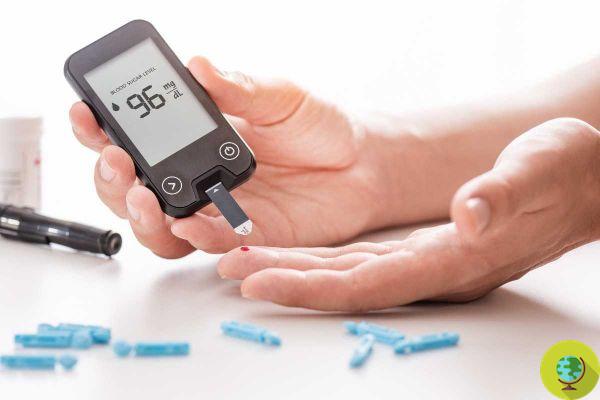
It can happen that you are faced with an increase in blood glucose levels, but this does not automatically imply that it is diabetes. In fact, high blood sugar is only one of the symptoms of this disease but it should not be neglected as it can lead to various complications. But how can we see the problem? What are the symptoms?
Don't store avocado like this: it's dangerous
It can happen that you are faced with an increase in blood glucose levels, but this does not automatically imply that it is diabetes. There high blood sugar in fact it is only one of the symptoms of this pathology but it should not be neglected as it can lead to various complications. But how can we see the problem? What are the symptoms?
Of course it is the necessary blood tests that will establish whether or not you have high blood sugar but each of us can and must pay attention to the messages that the body sends to warn that there is a situation of imbalance.
Here are 15 very common symptoms that can occur when blood glucose values are too high. Some are quite specific and easily reconnected, while others are decidedly more generic and possible mirror of other pathologies.
- Seven: wanting to drink throughout the day with the feeling that this thirst is unquenchable is certainly a very important alarm bell to report immediately to your doctor.
- Dry mouth: parallel to the great thirst you can feel the sensation of having a dry and dry mouth.
- Too hungry: even the appetite can be affected in case of high blood sugar, hunger can in fact become insatiable and the reason is apparently inexplicable.
- Frequent need to urinate: if you have a high blood sugar, you may have an increased need to urinate, particularly at night. In this case, the symptom can reflect problems that are completely different from a rise in the blood sugar level.
- Fatigue: high blood sugar can also give as a generic symptom a fairly constant feeling of fatigue associated in some cases with dizziness and vertigo.
- Slow wound healing: you may notice that cuts or wounds heal more slowly than usual. However, this problem may also be due to some pathologies and it is good to investigate.
- Itchy and dry skin: if blood sugars are high, dermatological problems may appear and in particular dry skin and widespread itching. Even in this case, however, it is a generic symptom to be included in a more general framework.
- Weight gain: if you put on pounds and your abdominal fat also increases it could be the fault of your high blood sugar.
- Recurring infections: a lowering of the immune defenses can lead to the appearance of recurrent infections.
- Nerve problems: nervousness, irritability, mood changes and other symptoms related to a malfunction of the nervous system may appear.
- Blurred view: vision may also be affected, which can be blurred or out of focus.
- Problems with concentration: the inability to stay focused for a long time can be a symptom of high blood sugar as well as other problems.
- Impotence: even sexual problems can result from too high sugar levels.
- Sweating and tachycardia: Sudden sweating and the onset of tachycardia can also be symptoms of high blood sugar.
- Numbness: a particular sign that can appear if there is an excessive presence of glucose in the blood is numbness, particularly of the lips and tongue.
EAT WILL HAVE A BADA HIGH BLOOD GLYCEMIA
One means that we all have at our disposal to keep blood sugar at bay is to look after our diet. We can put on the table especially foods with a low glycemic index (GI) so that blood glucose levels do not suffer peaks and subsequent collapses.
The scale with which foods are classified according to their effect on blood sugar goes from 0 to 100, the higher the value of a food and the greater the increase in blood sugar it produces after taking it. In case of high blood sugar, it is better to avoid foods that have a GI of 70 and up. Some common examples are white bread and potatoes.
Without exaggerating, foods with a moderate glycemic index should be eaten, including brown rice and cheeses.
Foods with a score from 0 to 54 can be eaten with peace of mind. These include eggs, various vegetables, some types of fruit, legumes and more.
Other tips for keeping blood sugar at bay can be found here:
- 5 FOODS THAT HELP LOWER THE SUGAR IN THE BLOOD
- CARBOHYDRATES: WHICH TO CHOOSE ON THE BASIS OF THE GLYCEMIC INDEX?
- AVOCADO: GREAT ALLY AGAINST GLUCOSE, HYPERTENSION AND BAD CHOLESTEROL


























